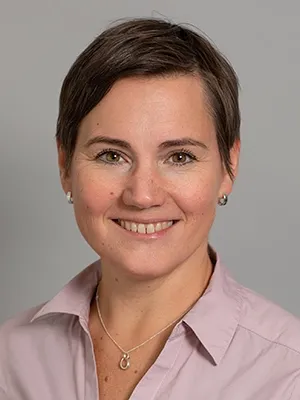Viktoria Hansson works at KI as a coordinator for students with disabilities . She is responsible for specialised study adaptations for KI students, known as pedagogical accommodations. We asked her a few common questions about this support.
First and foremost, what is pedagogical accommodation?

Pedagogical accommodation is various types of support designed for individuals with permanent disabilities. In this instance, a physical or mental disability counts as permanent when it is expected to persist beyond the next few months. The goal of pedagogical accommodations is to create a situation for students with disabilities that is comparable to the situation of those without disabilities, thus ensuring equal opportunities.
What criteria must be met to receive accommodation?
You need to be a KI student, apply for support, and provide documentation demonstrating your permanent disability. There must also be a clear connection between the requested support and the specific disability you have. Lastly, my colleagues and I need to find suitable accommodations based on your situation.
What type of support is available?
We assess each student's needs and try to tailor the support accordingly. Common accommodations include audiobooks, note-taking assistance, and extended time to complete written exams.
"Students contribute to each other's learning and well-being constantly. I encourage all students to study together occasionally and to be generous with their thoughts and questions towards classmates."
Can you mention common diagnoses or conditions that qualify for pedagogical accommodation?
Many students who receive support have conditions such as dyslexia, ADHD, autism spectrum disorder, and mental health issues.
Any advice for individuals who want to apply to KI, but are unsure if they can handle the studies due to a disability?
Certainly! Here are three tips:
- Reach out to a representative of a field you are interested in, or to someone working in it. Ask about the profession and consider how it might align with your abilities.
- Review the learning objectives in the course syllabi for programmes you're interested in. The learning objectives cannot be altered, so it is wise to assess whether any obstacles might hinder achieving them.






